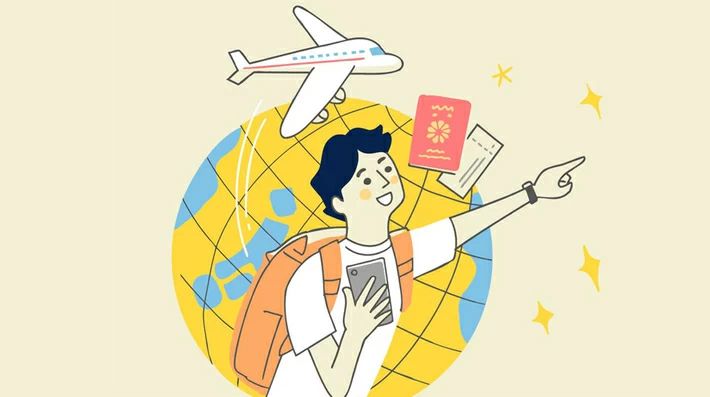
Studying abroad is a life-changing experience that provides the opportunity to gain a global perspective, meet people from diverse backgrounds, and immerse yourself in a new culture. However, adapting to a foreign environment isn’t always easy. Cultural adaptation is a crucial part of the journey, and understanding what to expect can help you navigate the process more smoothly. In this blog, we’ll explore the stages of cultural adaptation, common challenges, and tips to thrive while studying abroad.
What Is Cultural Adaptation?
Cultural adaptation means adjustment towards a new cultural environment. The procedure involves learning new social norms and adapting to various lifestyles that sometimes may be accompanied by discomfort feelings or homesickness. No matter how the experience would be unique, most persons undergo common stages of cultural adaptation.
Stages of Cultural Adaptation
- Honeymoon Stage
- During the initial days or weeks, everything about the new culture feels exciting and fascinating.
- You’re likely to enjoy exploring your surroundings, trying new foods, and meeting people.
- This stage is often characterized by feelings of optimism and wonder.
- Frustration Stage
- As the novelty wears off, cultural differences may begin to feel overwhelming.
- Language barriers, unfamiliar customs, and homesickness can lead to frustration or isolation.
- It’s normal to feel out of your comfort zone during this stage.
- Adjustment Stage
- Over time, you’ll begin to understand and adapt to the new culture.
- You’ll develop strategies to navigate challenges, like improving language skills or forming routines.
- This stage marks the beginning of feeling more at home in the host country.
- Acceptance Stage
- At this point, you’ve fully embraced the new culture and feel comfortable in your surroundings.
- While occasional challenges may arise, you’re better equipped to handle them.
- This stage often leads to personal growth and a deep appreciation for cultural diversity.
Typical Obstacles in New Cultural Adapting
- Language Barrier. Problems communicating with the locals can keep one from being close or conversing with other individuals around.
- Culture Shock. Your local customs on the things to do or manner in socializing can differ quite radically from your normal habit.
- Homesickness. Homesickness is another normal problem students face as they come and start living away from family, friends, and old neighborhood settings.
- **Adjustment in academic study patterns
- The styles of teaching, grading systems, and academic expectations vary widely.
- Social Integration
- Friendship building and networking with people from the host country or other students may take some time.
Tips to Thrive in Cultural Adjustment
- Know the Host Culture
- Read about the local customs, traditions, and social practices before you move to that place.
- Learn basic phrases in the local language.
- Be Open-Minded
Maintain a flexible attitude toward cultural differences and utilize them as a learning opportunity.
Do not try to compare your host culture with your original culture and make judgments. - Build Support Network
Connect with other international students, clubs, and local events.
- Do not hesitate to reach out to student support services or the counselor if you need additional help.
- Routine Helps
- Having some sort of daily routine keeps things stable and comfortable for you.
- Also, do activities that help remind you of home because it may be cooking up familiar meals or calling a loved one.
- **Patience Practice
- Cultural adaptation will take time, so please be patient with yourself throughout the process.
Be proud of small victories, like ordering food in the language of the place or a new friend.
- Keep a Journal
Record your experiences and challenges and achievements to have something to reflect on from the growth.
In addition, writing can assist you in processing emotions, which can help you achieve perspective.
Advantages of Cultural Adaptation
While it is difficult to adapt to a new culture, there are many benefits, such as:
- Personal Development: Overcoming challenges and venturing out of your comfort zone develops resilience and self-esteem.
- Improved Communication Skills: Learning to navigate cultural and linguistic differences enhances interpersonal skills.
- Global Outlook: Immersion in a new culture broadens one’s perspective and promotes empathy.
- Career Advancement: Employers appreciate cross-cultural experience and adaptability.
Conclusion
Cultural adaptation is part of the study abroad experience. Knowing the stages, anticipating challenges, and implementing practical strategies will help make the transition smoother and rewarding. Remember, every challenge you face is an opportunity for growth, and the skills you gain will benefit you long after your study abroad journey ends. Take the adventure and enjoy this transformative experience of living in a new culture!